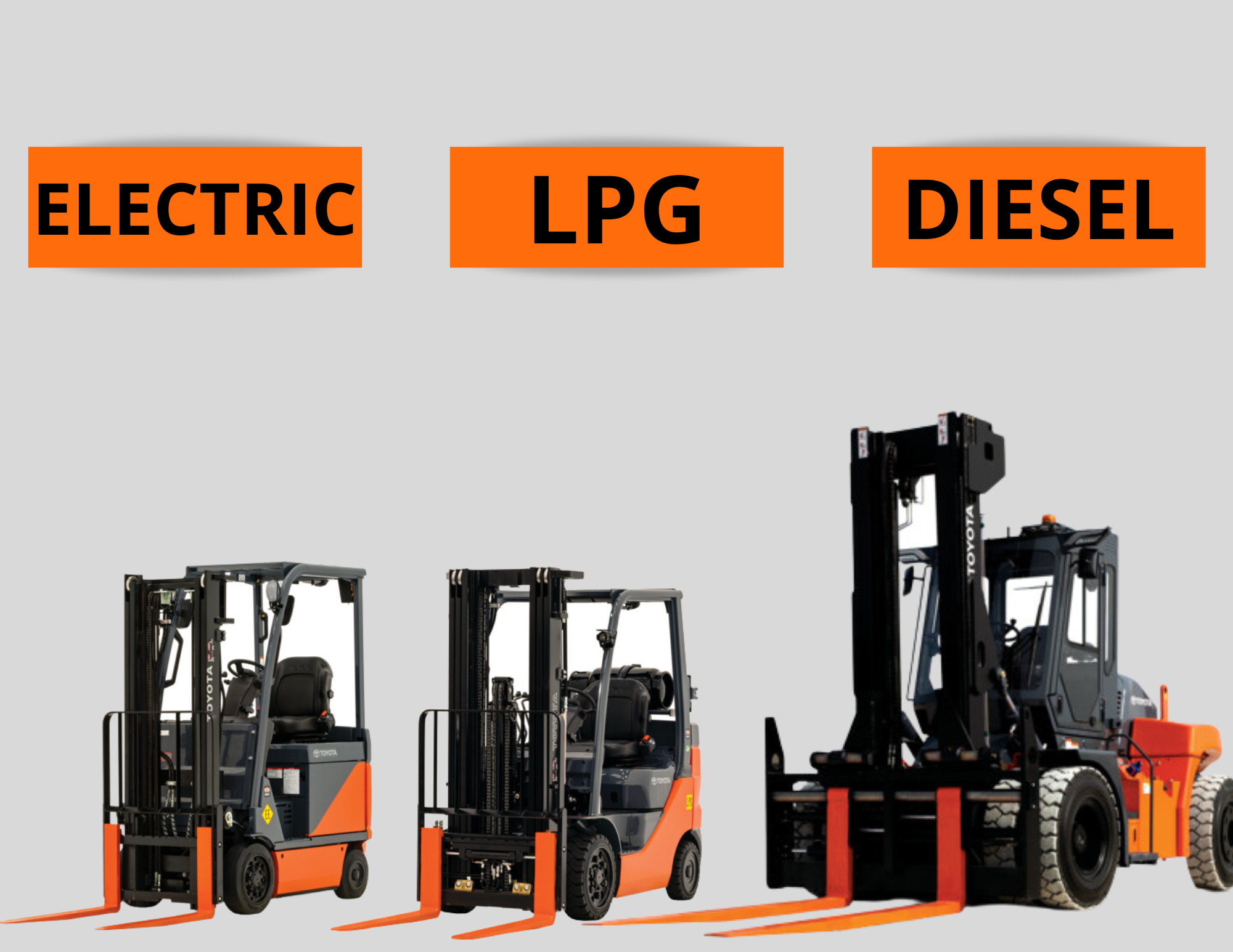Forklifts play a vital role in material handling operations across various industries, but choosing the right fuel type is essential for optimizing performance, efficiency, and environmental impact. Among the primary forklift fuel options are electric, LPG (liquefied petroleum gas), and diesel. In this blog, we’ll explore the pros and cons of each fuel type to help you make an informed decision for your business.
Electric Forklifts:
Pros:
- Environmental Friendliness: Electric forklifts produce zero emissions during operation, making them ideal for indoor use and environmentally sensitive areas.
- Lower Operating Costs: Electric forklifts generally have lower fuel and maintenance costs compared to their diesel and LPG counterparts.
- Quiet Operation: Electric forklifts operate quietly, reducing noise pollution in the workplace.
- Simplified Maintenance: With fewer moving parts and no engine fluids to manage, electric forklifts often require less maintenance.
Cons:
- Limited Range: Electric forklifts are typically limited by battery life, requiring downtime for recharging.
- Initial Cost: Electric forklifts tend to have a higher upfront cost compared to LPG and diesel options.
- Charging Infrastructure: Businesses need to invest in charging stations and infrastructure to support electric forklifts.
LPG Forklifts:
Pros:
1. Versatility: LPG forklifts can be used both indoors and outdoors, offering flexibility in various operating environments.
2. Quick Refueling: LPG forklifts can be refueled quickly, minimizing downtime compared to electric forklifts.
3. Lower Emissions: While not as environmentally friendly as electric forklifts, LPG emits fewer pollutants than diesel-powered models.
4. Comparable Power: LPG forklifts offer similar power and performance to diesel models.
Cons:
1. Fuel Storage: Businesses need to store LPG cylinders on-site, requiring space and adherence to safety regulations.
2. Emissions: While lower than diesel, LPG forklifts still emit pollutants during operation.
3. Fuel Cost: LPG fuel costs can vary depending on market conditions, potentially fluctuating more than electricity or diesel.
Diesel Forklifts:
Pros:
1. High Torque: Diesel forklifts offer high torque, making them suitable for heavy-duty applications and rough terrain.
2. Longevity: Diesel engines are known for their durability and longevity, requiring less frequent replacement compared to electric batteries or LPG cylinders.
3. Refueling Convenience: Diesel fuel is widely available and can be refueled quickly, minimizing downtime.
Cons:
1. Emissions: Diesel forklifts produce emissions during operation, contributing to air pollution and requiring proper ventilation in indoor spaces.
2. Higher Operating Costs: Diesel fuel costs and maintenance expenses may be higher compared to electric or LPG forklifts.
3. Noise Pollution: Diesel forklifts tend to be noisier during operation compared to electric models.
Choosing forklift fuel options involves weighing various factors such as environmental impact, operating costs, versatility, and performance requirements. Electric forklifts offer clean operation and lower long-term costs but may require infrastructure investments. LPG forklifts provide versatility and quick refueling but require fuel storage considerations. Diesel forklifts offer high torque and durability but produce emissions and noise. By considering the pros and cons of electric, LPG, and diesel forklifts, businesses can select the most suitable fuel option to meet their operational needs and sustainability goals.
